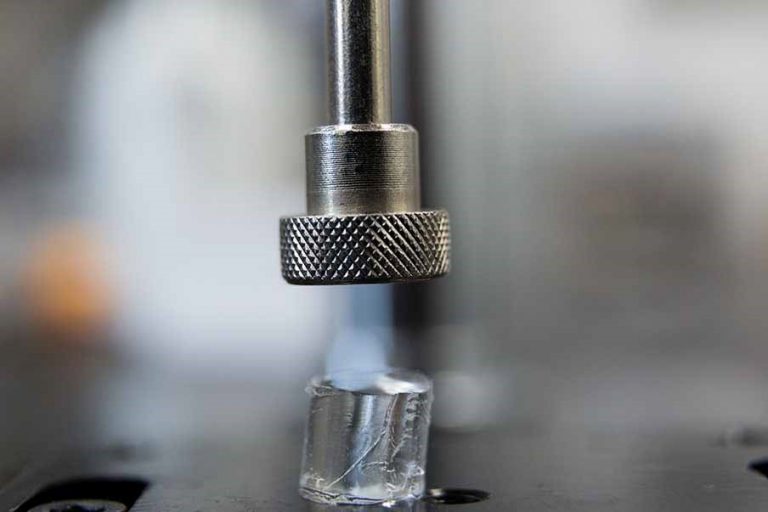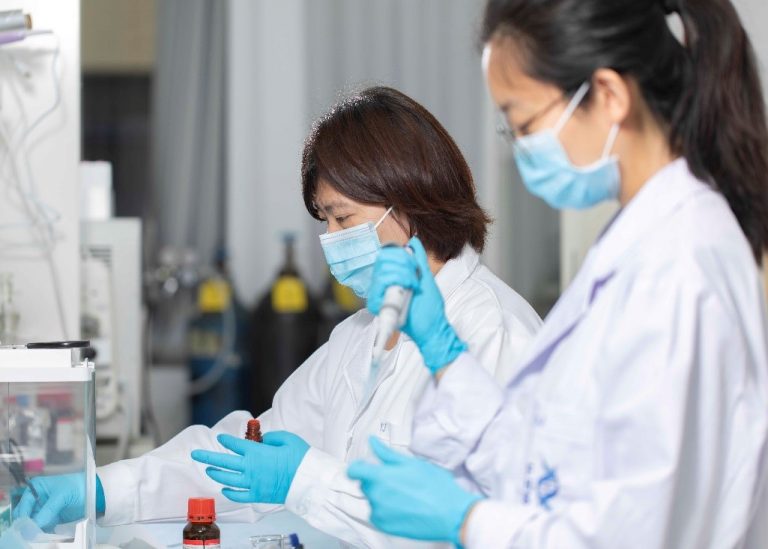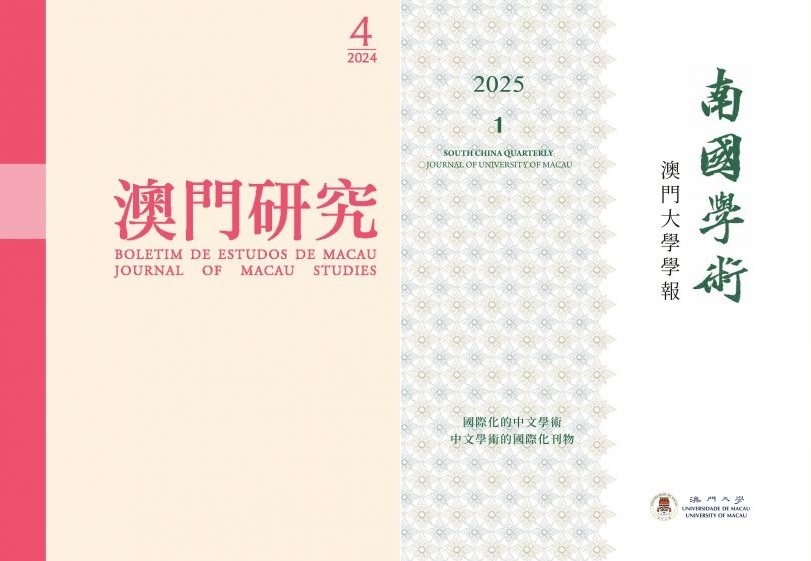UM has been included in the Essential Science Indicators (ESI) database for ranking among the top 1% in terms of citation frequency of published papers in 16 research fields. Among these, engineering, computer science, and pharmacology & toxicology ranked in the top 0.1% worldwide.
UM is among top 1% in 16 fields in Essential Science Indicators (ESI)
The ESI is an important indicator commonly used for evaluating the academic quality and influence of universities and research institutes in the international community. It is also one of the globally-recognized and important references for evaluating an institution’s academic development. The database only ranks fields with papers that have been ranked among the top 1 percent in terms of citation frequency in the last 10 years. This is testament to UM’s important and continuous contributions to the various fields and the university’s international recognition in the academic circle.
Engineering research at UM focuses on academic research and technological innovation. Faculty members in this field have strong research capabilities in electrical and computer engineering, electromechanical engineering and civil and environmental engineering. Through years of effort, the university has established a leading position in cutting-edge fields such as microelectronics, artificial intelligence, robotics, data science, intelligent manufacturing, green and low-carbon development, new energy, and new materials. This showcases its exceptional research capabilities and growing international influence. With over 70,000 citations, engineering stands as UM’s most cited research field.
Electrical and computer engineering
The Department of Electrical and Computer Engineering and the State Key Laboratory of Analog and Mixed-Signal VLSI at UM have developed cutting-edge chips. The university has also established a world-class chip measurement platform. In the field of microelectronics, the State Key Laboratory of Analog and Mixed-Signal VLSI at UM has made significant achievements in core technologies such as data conversion, power management, wireless communications, and voice signal processing. Notably, UM ranked first among Chinese higher education institutions in terms of the number of papers accepted at the prestigious IEEE International Solid-State Circuits Conference in years 2023 and 2024, demonstrating UM’s leading position in microelectronics research.

UM is internationally recognised for its leading position in microelectronics research.
Electromechanical engineering
Machinery research at UM focuses on four areas, namely thermal fluid and energy engineering, robotics and intelligent systems, advanced materials and smart manufacturing, and smart building equipment engineering. Intelligent robots have a wide range of applications in fields such as intelligent manufacturing and smart city security monitoring. Some projects conducted by the research teams in the Department of Electromechanical Engineering are supported by the National Natural Science Foundation of China, and the Macao Science and Technology Development Fund etc.
Civil and environmental engineering
The key research areas of civil and environmental engineering at UM are structural engineering, geotechnical engineering, construction management, environmental engineering and marine environment and engineering. The Faculty of Science and Technology established the Centre for Regional Oceans in 2019, with the aim of studying cutting-edge academic topics in marine environment and ocean engineering, promoting academic exchange and collaboration in related fields, in order to support the sustainable development of Macao and the Guangdong-Hong Kong-Macao Greater Bay Area. Based on the actual needs of Macao and the Greater Bay Area, the centre actively carries out research studies on the marine multi-circle dynamics and environmental regulation mechanisms, natural disaster prevention and engineering in coastal cities, as well as coastal environmental management and resource development. More than 30 scientific research topics, including key R&D projects for the Ministry of Science and Technology as well as those at provincial and ministerial levels, have been approved and will be carried out by members of the centre.
UM has a strong commitment to green energy research and strives to provide solutions to energy and environmental challenges. To achieve this, UM has assembled a team of innovative, multidisciplinary scientists in the fields of chemistry, physics, and materials science. These experts conduct research in various areas including quantum mechanics, physical chemistry, inorganic and analytical chemistry, as well as advanced applications such as energy storage batteries, nano-photoelectric devices, and functional polymer materials. UM’s Institute of Applied Physics and Materials Engineering has also achieved excellence in materials science and chemistry. To date, the Institute has undertaken more than 190 research projects and published over 2,000 papers in SCI-indexed journals, with a cumulative number of citations exceeding 40,000.

UM’s Institute of Applied Physics and Materials Engineering has made remarkable achievement in materials science and chemistry.
In the field of computer science, UM has also made remarkable progress in recent years. UM is ranked 101st in the 2024-2025 U.S. News & World Report Best Global Universities Rankings for computer science. UM has one of the most advanced laboratories in the country – the State Key Laboratory of Internet of Things for Smart City. The university’s strengths in computer science research are mainly reflected in internet technology, artificial intelligence and big data. UM scholars in this field have published many high-quality papers in internationally renowned journals and at top conferences.
With the support of the State Key Laboratory of Internet of Things for Smart City and the Institute of Collaborative Innovation, the university has achieved breakthroughs and innovations in critical areas such as artificial intelligence, big data, and computing systems. UM is committed to advancing technologies for large-scale data processing and intelligent simulation, developing algorithms for large multimodal models, and designing efficient and reliable computing architectures. The university has not only published numerous papers in top-tier international journals and conferences, but has also successfully translated its research results into practical solutions.

UM’s strengths in computer science research are mainly reflected in internet technology, artificial intelligence and big data.
Materials research is interdisciplinary in nature and requires an excellent grasp of knowledge in chemistry, physics and mathematics. UM has a team of innovative, multidisciplinary scholars in the fields of chemistry, physics, and materials science. They conduct research in quantum mechanics, physical chemistry, inorganic and analytical chemistry, energy storage batteries, nano-photoelectric devices, and polymer functional materials. UM attaches great importance to research related to green energy and strives to provide solutions to energy and environmental challenges. The Institute of Applied Physics and Materials Engineering has achieved outstanding results in the field of chemistry and materials science. Main research outcomes include hybrid active power filters, perovskite solar cells, zinc-air fuel cells, and superabsorbent and superconducting highly-elastic hydrogel. The innovative super hydrogel exhibits an exceptional water absorption capacity of more than 18,000 times its weight, setting a new world record. The institute will also accelerate and promote studies in the following areas: carbon quantum dot cancer immunodiagnosis and treatment, supersurface optical properties, as well as quantum dot luminescent materials and devices.
UM’s clinical medicine research is mainly conducted by two academic units: the Institute of Chinese Medical Sciences (ICMS) and the Faculty of Health Sciences (FHS). ICMS has established a world-leading platform for innovation in Chinese medicine – the State Key Laboratory of Mechanism and Quality of Chinese Medicine. To date, ICMS has published over 4,200 papers in SCI-indexed journals with over 14,400 citations in total. Since its establishment in 2013, FHS has made great progress in clinical medicine-related research, especially in precision medicine for cancer treatment, stem cells and development, ageing, neurological and metabolic disorders, drug development, data science, bioimaging, and nanomedicine. To date, FHS has published over 2,400 papers in SCI-indexed journals with over 66,000 citations in total.

UM has made important contributions in the field of clinical medicine.
In the field of pharmacology & toxicology, UM actively integrates immunology, neuroscience, synthetic biology, materials science, and artificial intelligence to drive innovative advancements in Chinese medicine research. Through its groundbreaking advancements, UM is ranked 33rd in the 2024-2025 U.S. News & World Report Best Global Universities Rankings for pharmacology and toxicology, the highest ranking among universities in Hong Kong and Macao. The number of research articles published by UM scholars in pharmacology and toxicology is on the rise, as is their global impact. To date, UM has published over 1,400 papers in SCI-indexed journals in the field of pharmacology and pharmacy, which further highlights its strength as a leading platform for pharmaceutical science research.
Through the Institute of Chinese Medical Sciences and the State Key Laboratory of Mechanism and Quality of Chinese Medicine, the university has established several prominent pharmaceutical research platforms. A notable example is the UM Centre for Pharmaceutical Regulatory Sciences, which is recognised by the Pharmaceutical Administration Bureau of the Macao SAR government to conduct third-party technical assessments for the registration of proprietary Chinese medicines. The centre is also the first research platform in the Guangdong-Hong Kong-Macao Greater Bay Area dedicated to regulatory science and international drug registration strategies. The UM Macao Centre for Testing of Chinese Medicine also plays a key role in the field, offering a wide range of testing services, over a hundred of which are accredited by the China National Accreditation Service for Conformity Assessment (CNAS).

UM has developed a world-leading platform for innovations in Chinese medical sciences.
The psychiatry/psychology research direction is mainly pursued at UM by the Faculty of Health Sciences and the Department of Psychology from the Faculty of Social Sciences. UM’s psychology ranks 10th in Asia and 126-150th in the world in THE World University Rankings 2024. Professors in the Centre for Cognitive and Brain Sciences, the Department of Psychology of the Faculty of Social Sciences, the Faculty of Education and the Faculty of Health Sciences have published over 500 top scientific papers in the fields of psychology and cognition, that are ranked among the top in Asia in terms of both quality and quantity. They also hold important positions as editors, associate editors, and editorial board members for a number of prestigious international journals, including Journal of Affective Disorders, International Journal of Clinical and Health Psychology, Neuroscience Bulletin, World Psychiatry, The Lancet, JAMA Psychiatry, Journal of Child Psychology and Psychiatry, Health Psychology and Behavioral Medicine, Behavior Research Methods, and Journal of Educational Psychology.

UM’s scientific papers in the fields of psychology and cognition rank among the top in Asia in terms of both quality and quantity.
UM has achieved remarkable progress in its social sciences research in recent years. Studies at UM in the fields of psychology, economics, international relations, communication, and criminology have attracted international attention. The Faculty of Social Sciences (FSS), Faculty of Education (FED), and Faculty of Business Administration (FBA) have made exceptional contributions. Their dedicated scholars have produced high-quality and impactful research papers, placing UM’s social sciences among the top 1% in the ESI.
UM ranks 126-150th in education in the Times Higher Education (THE) World University Rankings 2024 by subject, and ranks 20th in the 2024-2025 U.S. News & World Report Best Global Universities Rankings for education and educational research. FED has published over 400 education-related papers in SSCI-indexed journals over the past two years. On the other hand, UM secures a position of 176-200th in social sciences in the 2025 THE subject rankings. FSS has published over 150 papers in SSCI/SCI-indexed journals last year. It is also worth highlighting that FBA spans diverse research areas and has published over 200 papers in SSCI-indexed journalsin recent years, advancing UM’s research excellence in social sciences.

UM’s research studies in social sciences have attracted much attention.
The Faculty of Health Sciences (FHS) at UM has made consistent breakthroughs in the fields of biology and biochemistry, placing UM among the top 1% in ESI in this field. Its research results have been published in many prestigious journals. Notable recent research discoveries include: 1) the development of a self-assembly nanomedicine that can enhance the therapeutic efficacy of triple-negative breast cancer; 2) the discovery of a novel biochemical mechanism of tumour immune evasion that provides a new therapeutic target for anti-tumour immunotherapy; and 3) the identification of a new drug that can treat bacterial infections caused by multidrug-resistant Acinetobacter baumannii. These research results have been published in Chemical Engineering Journal, Advanced Science, and Science Advances, respectively.
The Faculty of Health Sciences (FHS) at UM has made remarkable achievements in molecular biology and genetics research. The groundbreaking findings not only have been published in some of the world’s most prestigious journals, including Molecular Cell, Nature Genetics, and Nature Communications, but have also contributed to UM’s top 1% ranking in ESI in molecular biology and genetics.
Notable achievements of the research teams include: 1) the identification of a novel strategy for treating colorectal cancer cells by applying the genetic theory of ‘synthetic lethality’; 2) through molecular-level and genome-wide studies, the team has discovered new drug targets for small cell lung cancer (SCLC), opening up new avenues for SCLC research; and 3) the establishment of 3D genome structures during the embryonic development of the tropical clawed frog (Xenopus tropicalis), which contributes to the understanding of the various defects and diseases caused by genetic abnormalities.
These advancements not only showcase FHS’s contributions to healthcare but also highlight UM’s commitment to improving global health through innovative research in health sciences.
With the support of cutting-edge research of the Institute of Chinese Medical Sciences (ICMS) and the State Key Laboratory of Mechanism and Quality of Chinese Medicine (MQCM), UM ranks among the top 1% in ESI in agricultural sciences, demonstrating its leadership in interdisciplinary research. The integration of agricultural sciences with Chinese medicine has yielded transformative innovations in medicinal herb cultivation and quality control, agricultural safety monitoring systems, and medicinal plant resource development. ICMS and MQCM continue to bridge modern science with traditional knowledge through high-quality translational research in Chinese medicine. This approach systematically advances medicinal herb cultivation technologies, quality standardisation, and sustainable agricultural practices to improving the health of human beings.
UM’s Faculty of Business Administration (FBA) is a distinctive flagship business school in Macao and neighbouring regions. Over the past five years, scholars in FBA have published over 380 papers, which have been cited over 2,600 times in total, placing UM among the top 1% in ESI in economics and business. With a focus on student-centred education, FBA adopts an innovative pedagogic model that integrates technology and real-world business elements. The faculty also holds accreditations from three leading accrediting bodies in business education: the Association to Advance Collegiate Schools of Business (AACSB), the Association of MBAs (AMBA), and the EFMD Quality Improvement System (EQUIS), placing it among an exclusive group of business schools in the world with this triple-crown status.
The Department of Civil and Environmental Engineering of the Faculty of Science and Technology at UM is committed to advancing knowledge beyond traditional engineering fields. With its exceptional research strengths in environment and ecology, UM ranks among the top 1% in ESI in this field, enabling the department to make significant contributions to the understanding and preservation of the planet. With expert faculty members, the department focuses on critical areas such as air and water quality modelling, environmental biotechnology, and wastewater treatment. Supported by the state-of-the-art laboratories, the State Key Laboratory of Internet of Things for Smart City, and the Centre for Regional Oceans, the department provides rich research resources to develop sustainable solutions.
Geosciences includes all fields of natural science related to the earth. UM advances geosciences research through its faculties and research teams, placing UM among the top 1% in ESI in this field. The university has also collaborated with the Aerospace Information Research Institute of the Chinese Academy of Sciences to develop advanced machine learning techniques for wind field inversion and tropical cyclogenesis detection using remote sensing data. In addition, the National Natural Science Foundation of China, the National Key R&D Program, and the Macao Science and Technology Development Fund supported some research projects. Notably, a UM researcher has received national and international awards, including the China Aerosol Young Scientist Award (2019) from the Chinese Society of Particuology and the Asian Young Aerosol Scientist Award (2022) from the Asian Aerosol Research Assembly, for his pioneering research on the impact of aerosol particles on global climate and air pollution.
The Department of Mathematics (MAT) of the Faculty of Science and Technology at UM is dedicated to advancing mathematical knowledge and fostering a passion for the subject. Its cutting-edge research and education initiatives have contributed to UM’s top 1% ranking in ESI in mathematics. MAT has made significant progress in mathematics research, with students achieving remarkable success in competitions. Notable awards include first prize in the 4th Greater Bay Area Cup Financial Mathematics Modeling Competition and the 19th China Postgraduate Mathematical Contest in Modeling (Huawei Cup). To further enhance its research capabilities, MAT has established the Centre for Applied Mathematics. The centre aims to solve critical mathematical challenges in major national science and technology projects and address the development needs of various industries.

